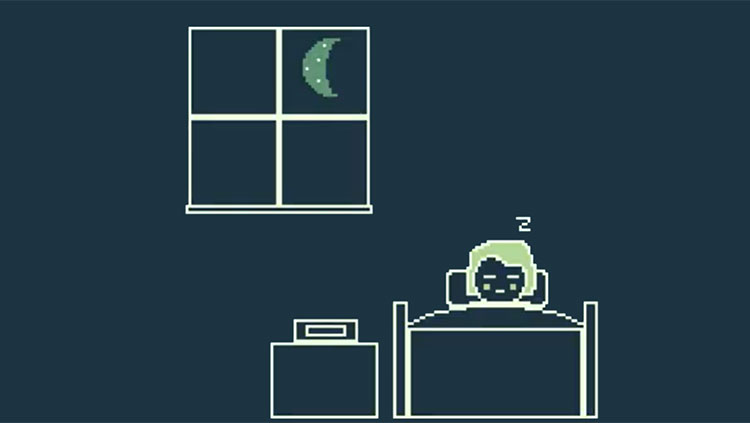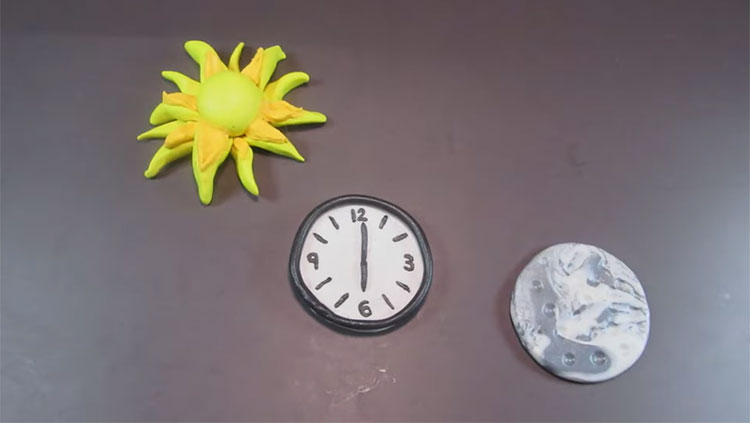An Overactive Brainstem During Sleep Disrupts Memory
- Published13 Jan 2021
- Author Calli McMurray
- Source BrainFacts/SfN

Restful as it may be, sleep is not a break for the brain: each night of sleep remodels the nervous system. After a full day of experiencing new things, the brain must make room to store freshly minted memories.
But to do so, the brain must disconnect from the outside world and generate a special kind of brain wave that only pops up during sleep. It’s a process that is both risky and beneficial. And when it’s hijacked by an overactive brainstem, our memories and overall brain function can falter.

These brain waves appear as brief bursts of brain activity on an EEG. Called sleep spindles after the wool-spinning tool they resemble, they occur most often in light sleep when it is easier to wake up. Spindles help disconnect us from the environment, so “the brain is left on its own and it can process new information,” said Anita Lüthi, associate professor of neuroscience at the University of Lausanne. By silencing some layers of the cortex and activating others, sleep spindles encourage memory consolidation. “It’s this sharpening of information that has been relevant to you and separating it from what is worth forgetting,” said Lüthi.
Yet this process is not without risks. Disconnecting from the world for extended periods of time leaves animals vulnerable to predators and environmental dangers. Dolphins solve this problem by never fully going to sleep: one brain hemisphere enters a sleep stage while the other remains active.
The land mammal solution involves keeping a cluster of neurons in the brainstem, called the locus coeruleus, active during sleep. The locus coeruleus releases norepinephrine, “the neurotransmitter that makes us awake, alert, and attentive,” said Lüthi. “Locus coeruleus activity during sleep is the compromise that the mammalian system has found to be asleep but not too disconnected.”
When it goes silent for short periods of time, sleep spindles appear. But a misbehaving, overactive locus coeruleus disrupts sleep by preventing the formation of sleep spindles. Gina Poe, professor of integrative biology and physiology at the University of California, Los Angeles, studies the link between the locus coeruleus, sleep spindles, and memory performance. In work presented at the Society for Neuroscience’s Global Connectome conference, Poe disrupted sleep spindles in rats by activating the locus coeruleus and tested the animals’ ability to remember the location of a cheese reward. The fewer sleep spindles, the worse the rats’ memory, while more sleep spindles improved their performance.
“Without adaptive locus coeruleus-free sleep, we become stressed and our hippocampus, which is supposed to be the assembly place of our memories, becomes saturated,” said Poe. A saturated hippocampus runs out of space for storing new information. “You can imagine that there might be a lot of things, including post-traumatic stress disorder, which might be affected by the inability to incorporate new information,” she noted.
In fact, locus coeruleus activity during sleep is off the charts in animal models of PTSD. Without a break in locus coeruleus activity, the brain cannot weaken connections between neurons to build new ones. This could explain why people with PTSD struggle to alter their associations between neutral stimuli and danger, like seeing a helicopter and knowing it’s for a news network rather than an attack.
Researchers still need to investigate if the link between sleep spindles and PTSD in rodents extend to humans. If they do, future treatments targeting abnormal sleep may offer relief for the memory-related symptoms of PTSD. “I would imagine if you could somehow quell the activity of the locus coeruleus during sleep spindles alone, that might be enough to help people integrate the traumatic memories into the rest of their memory schema,” said Poe.
CONTENT PROVIDED BY
BrainFacts/SfN
Also In Sleep
Trending
Popular articles on BrainFacts.org

















